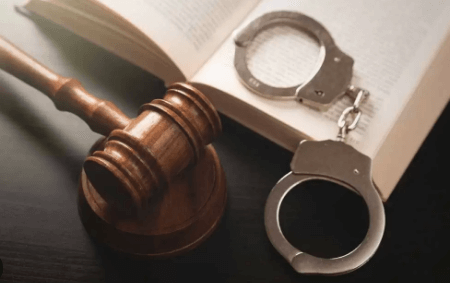The Essential Role of Criminal Defense Lawyers

1.The Role of Criminal Defense Lawyers
Criminal defense lawyers serve as the cornerstone of justice within the legal system. Their primary duty is to defend individuals or entities charged with criminal offenses, ensuring that every defendant receives a fair trial as guaranteed by the Constitution. These lawyers interpret complex legal statutes, gather evidence, question witnesses, and develop strategic defense plans aimed at protecting their client’s rights. Without their presence, many accused individuals could face the risk of wrongful convictions or disproportionate penalties. A criminal defense attorney’s expertise is not merely in knowing the law but in applying it skillfully to ensure justice prevails. They operate as both advocates and advisors, guiding clients through every stage of the criminal justice process—from investigation to trial and even appeals. Whether the case involves misdemeanors, felonies, or federal crimes, criminal defense lawyers play an irreplaceable role in balancing the scales of justice and safeguarding the integrity of legal proceedings.
2. The Importance of Legal Representation in Criminal Cases
Having a skilled criminal defense lawyer can be the determining factor between conviction and acquittal. Legal representation is vital because the criminal justice system is highly complex, and even a small procedural mistake can have serious consequences. Defense lawyers understand the nuances of criminal law, courtroom etiquette, and legal procedures that ordinary individuals may not grasp. They are trained to identify flaws in the prosecution’s case, challenge illegal evidence, and ensure that the accused’s constitutional rights—such as the right to remain silent or to be free from unlawful searches—are not violated. Additionally, defense attorneys negotiate plea deals when appropriate, aiming to reduce sentences or have charges dismissed entirely. Their involvement brings fairness to the process, preventing the power of the state from overwhelming an individual defendant. Without capable representation, defendants often face the full force of the prosecution without adequate protection, making the presence of criminal defense lawyers indispensable for justice.
3. The Criminal Defense Process: From Investigation to Trial
The work of a criminal defense lawyer begins long before a case reaches the courtroom. From the moment an individual is accused or arrested, defense lawyers start investigating the facts. They review police reports, gather witness statements, analyze evidence, and consult with forensic experts when necessary. During the pre-trial phase, they file motions to suppress illegally obtained evidence or dismiss charges lacking probable cause. Once the case moves to trial, the defense lawyer’s role becomes even more critical. They present arguments before a judge and jury, cross-examine prosecution witnesses, and introduce evidence supporting the client’s innocence or mitigating circumstances. Every phase demands strategy, precision, and persuasive communication. In cases where conviction seems inevitable, defense lawyers still advocate for reduced sentences or alternative punishments such as probation or rehabilitation programs. Even after a verdict, they may pursue appeals, arguing that errors during trial violated the defendant’s rights. This continuous commitment reflects their vital function—not only as defenders but as guardians of procedural justice.
4. Skills and Qualities of an Effective Criminal Defense Lawyer
A successful criminal defense lawyer possesses a combination of legal acumen, analytical thinking, and emotional intelligence. Strong communication skills are essential, as they must articulate complex arguments clearly to judges and juries. Analytical and investigative abilities allow them to uncover inconsistencies in the prosecution’s evidence or witness testimonies. Equally important is negotiation skill, which is crucial when arranging plea bargains or reduced sentences. Beyond technical expertise, empathy and integrity define great defense lawyers. They often represent clients who are misunderstood, marginalized, or wrongly accused—making compassion a necessary quality. Ethical standards are also paramount since defense attorneys must navigate the delicate balance between client confidentiality and legal obligations. Time management, composure under pressure, and persuasive writing are other indispensable traits. The best criminal defense lawyers queens not only know the law but embody the principles of justice, fairness, and human dignity. Their success depends not just on winning cases but on upholding the very foundation of the legal system.
See also: Aboflah Net Worth: Ghanaian YouTuber’s Earnings
5. Choosing the Right Criminal Defense Lawyer
Selecting the right criminal defense lawyer can dramatically influence the outcome of a case. Clients should prioritize experience, specialization, and reputation when making their choice. An attorney with a strong background in criminal law will better understand local court systems, prosecutors, and judges, which can be advantageous during proceedings. Prospective clients should look for lawyers who have handled cases similar to theirs, whether in areas like drug offenses, white-collar crimes, or violent felonies. Communication and trust are also crucial—clients must feel comfortable discussing sensitive information openly. Many top defense attorneys offer initial consultations, during which they outline potential strategies, discuss fees, and evaluate the case’s strengths and weaknesses. Reviews, testimonials, and professional credentials can further guide the selection process. Ultimately, a good criminal defense lawyer is not just a legal representative but a partner in navigating one of life’s most challenging experiences. Their role extends beyond defending a client—they advocate for truth, fairness, and the protection of individual rights in the face of adversity.






